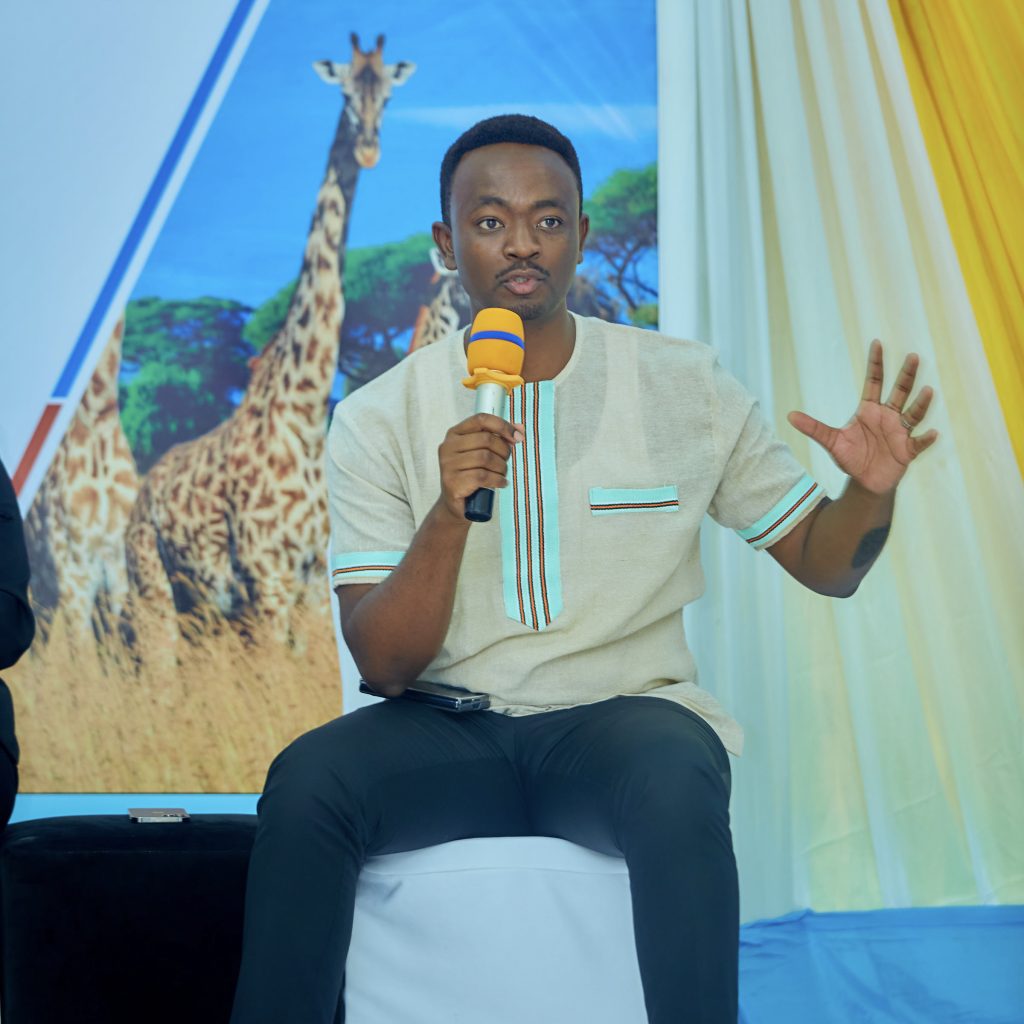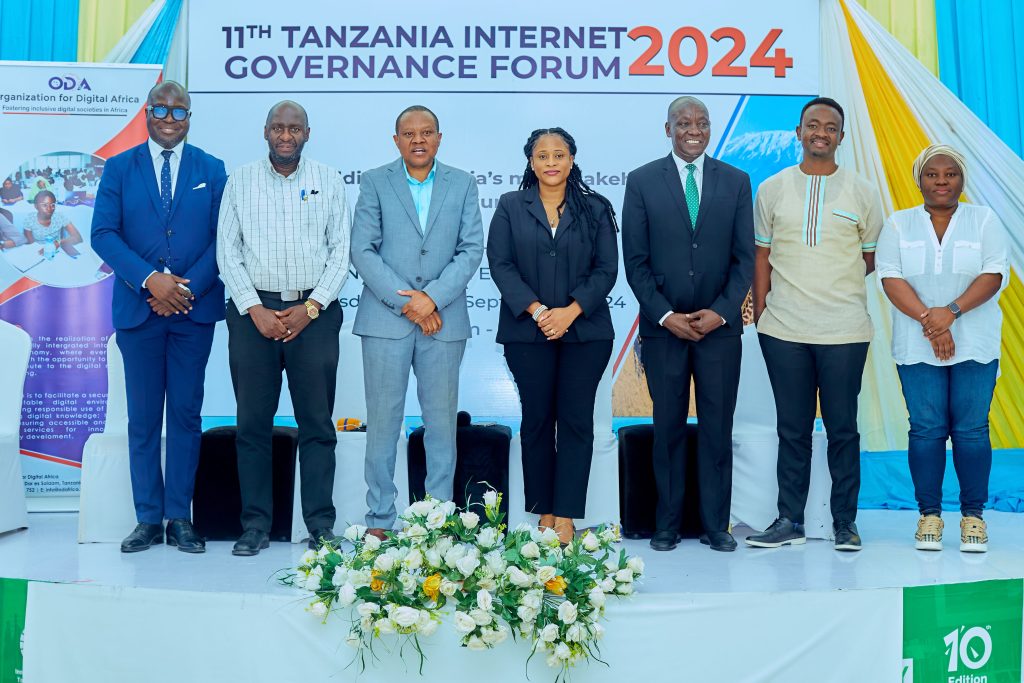Meta, the global technology giant, is making significant strides in Tanzania as it aligns itself with a multistakeholder approach to Internet governance. With over 15 million active social media users in the country (on Facebook, Instagram and WhatsApp), Tanzania represents a key market for Meta, especially as the nation embraces digital transformation.
As Meta deepens its engagement in Tanzania’s internet ecosystem, it is focusing on ensuring that its platforms are not only widely accessible but also governed inclusively, responsibly, and collaboratively. This shift toward multistakeholderism reflects a broader strategy to create digital spaces that are safer, more inclusive, and supportive of local communities.
Speaking at the panel discussion hosted by Tech and Media Convergency (TMC) at the 2024 Tanzania Internet Governance Forum (IGF), an event organized by the Internet Society in Tanzania, Desmond Mushi, Meta’s Public Policy Manager for East and Horn of Africa, articulated the company’s vision for its role in Tanzania’s digital future.
ALSO READ TCRA’s 2023 Report: Internet and Social Media Usage, Should We Expect Rising Cyber Threats?
His remarks emphasized the importance of building partnerships with key stakeholders—including governments, civil society, academia, and industry players—to ensure that policies governing digital spaces reflect the needs and aspirations of all users.
The Shift to Multistakeholderism
Multistakeholderism is an approach that seeks to involve diverse groups in decision-making processes, especially around Internet governance. Adopting this approach is crucial for sustainable growth for a company like Meta, which has a massive influence on how Tanzanians communicate, consume information, and do business.
Meta’s platforms, including Facebook, Instagram, and WhatsApp, are not just social tools; they have become integral parts of Tanzanian life—connecting people, businesses, and communities nationwide.
At the forum, Desmond Mushi highlighted Meta’s commitment to this approach: “The quality of inclusion depends on the quality of the stakeholders involved.
We need stakeholders representing the communities’ diversity and needs to help create safe, inclusive digital spaces.” By recognizing that effective internet governance must include a variety of perspectives, Meta is actively working to foster stronger ties with local organizations, policymakers, and users.
This shift is particularly important in Tanzania, where digital platforms have become the primary mode of communication for millions but where privacy, online harassment, and content moderation remain challenging. Meta’s embrace of multistakeholderism signals a recognition that the company cannot address these challenges alone—they require collaboration and input from a wide range of actors.
Addressing Online Harassment and Policy Gaps
One of the key issues Meta has faced in Tanzania is the rising concern over online harassment, particularly targeting political figures and their families. During the forum, Mushi addressed this issue, stating: “Tanzania raised concerns about online harassment targeting family members of political leaders, which prompted the creation of an anti-bullying harassment policy on our platform.”
This policy development highlights how local concerns can shape global platform policies through active dialogue between stakeholders.

Meta’s swift response to these concerns underlines the importance of open communication channels with Tanzanian civil society and government entities.
By working closely with these stakeholders, Meta is able to address pressing issues and adapt its platform policies to better reflect Tanzania’s unique social and cultural dynamics. This collaborative approach sets Meta apart from other global tech giants operating in the region, as it demonstrates a willingness to be responsive and accountable to local communities.
However, Desmond Mushi also pointed out some areas where Tanzania could improve in its approach to digital governance. He emphasized the importance of transparency in decision-making processes and the need to “build trust with digital users through better data protection frameworks.”
Mushi explained, “while digital growth is positive, the regulatory environment must keep pace with technology, or it risks limiting innovation.”
He also noted that “Tanzania is still lacking a robust digital literacy framework, which leaves many users vulnerable to misinformation and online scams.” As part of Meta’s commitment to the country, the company aims to work with stakeholders to develop educational initiatives that help Tanzanians navigate the digital landscape more safely.
Meta’s Collaboration with TCRA
Meta’s collaboration with Tanzania Communications Regulatory Authority (TCRA) plays a crucial role in ensuring effective governance of its platforms in Tanzania. As Desmond Mushi shared during the forum, “Meta works closely with TCRA to address issues that Tanzanians face on our platforms, including content disputes and privacy concerns.”
For users who encounter issues on Meta’s platforms—whether it’s content removal requests, account recovery, or privacy concerns—TCRA serves as an additional support channel. “People with issues on Facebook that can’t be resolved directly on the platform can reach out to TCRA, and they will assist,” Mushi explained, highlighting the importance of government collaboration in resolving platform disputes.
This partnership is critical, as it provides additional recourse for Tanzanians who may struggle to navigate Meta’s global content moderation processes. The involvement of TCRA ensures that Tanzanians have access to local support in addressing their concerns, creating a more responsive and transparent digital governance system.
ALSO READ Digital Dream vs Reality: Tanzania’s Tech Ambitions Meet the Global Innovation Race
It also raises concerns about the privacy of some content. Is the partnership absolutely safe? That’s a question that Mushi addressed, acknowledging that the only content they share is periodically published and accessible to all.
Meta’s Broader Role in Tanzania’s Digital Economy
Meta, in collaboration with UNESCO, recently launched monetization for content creators in early August 2024. Meta’s role in Tanzania goes beyond content moderation and online safety. The company is also a major player in the country’s digital economy, particularly in how small businesses leverage social media for growth.
Platforms like WhatsApp and Facebook have become essential tools for entrepreneurs and SMEs looking to reach wider audiences and expand their operations. However, as digital commerce grows, so too does the need for better regulation and governance of these platforms.
“There is a specific team in Meta that works closely with mobile network providers and is called the telco ecosystems team,” Mushi explained. “We also have a team that collaborates with civil society organizations to ensure that our digital platforms are governed inclusively in terms of policy.” This partnership approach is key to ensuring that the digital economy thrives in a way that is fair, accessible, and secure for all users.
By engaging with multiple stakeholders, Meta is helping to create a more level playing field for Tanzanian businesses, ensuring that they remain inclusive as the country’s digital economy grows.
Collaboration with mobile networks and civil society also opens opportunities for improved connectivity in rural areas, helping bridge the digital divide and ensuring that all Tanzanians can benefit from the digital revolution.
Meta’s embrace of multistakeholderism in Tanzania significantly shifts how the company operates in emerging markets. By recognizing the importance of local engagement and policy collaboration, Meta is positioning itself as a responsible partner in Tanzania’s digital transformation. This approach strengthens Meta’s presence in the country and ensures that its platforms remain relevant, inclusive, and beneficial to all Tanzanians.
As Tanzania’s digital economy grows, the continued collaboration between Meta, the government, civil society, and the private sector will be crucial in ensuring that the internet remains a space that empowers, rather than excludes, its users.

